Greensill: Lady Heywood's anger at 'scapegoating' of late husband by inquiry
- Published
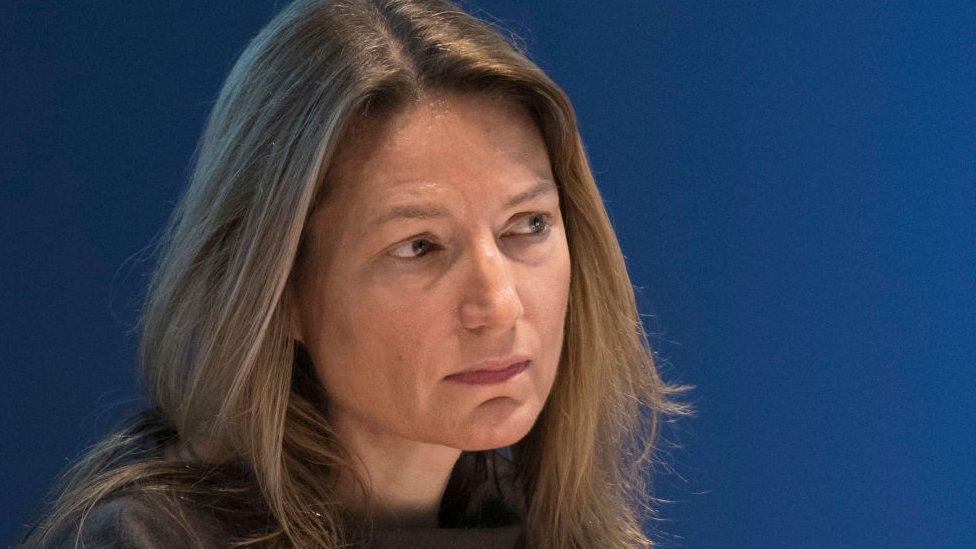
The widow of the former head of the civil service has told the BBC her late husband was effectively "gagged" by a government inquiry into lobbying.
The review, external said Lord Jeremy Heywood failed to fully consider conflicts of interest over a government role for the financier Lex Greensill.
Lady Suzanne Heywood said the report had "scapegoated" her late husband.
It also failed to reflect the role of ministers in signing off Mr Greensill's appointment, she added.
A Cabinet Office spokesperson said the process had been "fair" and the review had listened to Lady Heywood's concerns.
Lord Heywood, who died of cancer in 2018, was at the heart of Downing Street for several decades, serving under Tony Blair and Gordon Brown, before becoming cabinet secretary under David Cameron.
Lawyer Nigel Boardman was drafted in by Boris Johnson in April this year to examine the role played by Mr Greensill in government. The review was prompted by revelations about Mr Cameron lobbying ministers on behalf of Greensill Capital, which collapsed in March this year.
'Horrible process'
Mr Boardman's report, published on Thursday, found the Australian financier had sometimes enjoyed an "extraordinarily privileged" relationship with ministers.
It said Lord Heywood had been "primarily responsible" for bringing Mr Greensill into government under the coalition government.
But Lady Heywood, herself a former senior civil servant, who is now the chief executive of an international investment house, said the Boardman review was "a fabricated attack" on her late husband.
Speaking on BBC Radio 4's Today programme, she accused the inquiry of "trying to set up my husband, as far as I can see, to divert attention from things which happened much later after he died".
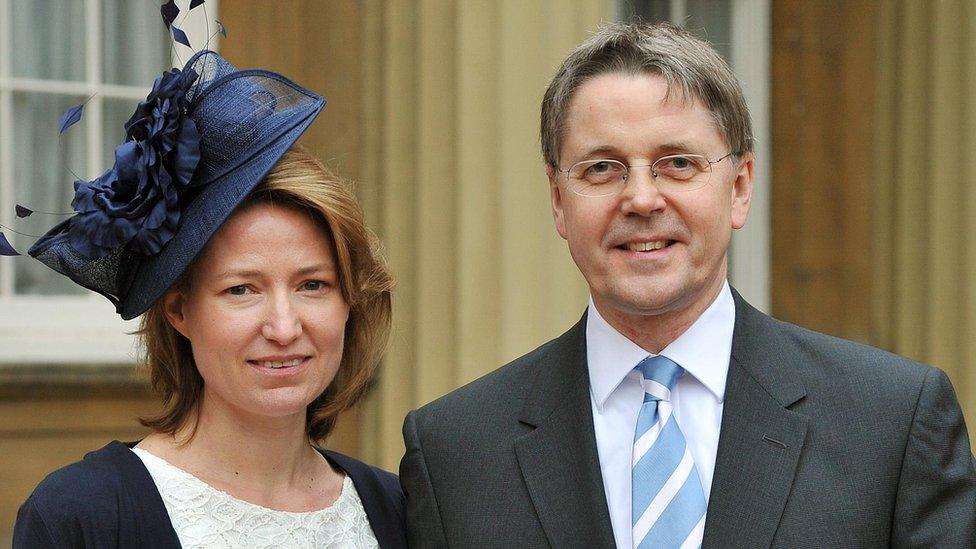
Suzanne and Jeremy Heywood, pictured here in 2012 when he received a knighthood
She said nobody was allowed to represent her husband during the review, and she was only given access to the review documents last week - whereas all other parties had access from when the review started in April.
Lady Heywood said this "goes against every possible precedent - if you take the Dyson Review, the Bloody Sunday Review, all of those allowed representation from people who are no longer with us … he effectively gagged my husband in order to scapegoat him in the process."
She added that Mr Greensill had been "appointed with ministerial authority" ten years ago with "a completely clear record", at a point when "supply chain finance had been highlighted by the coalition government as a priority".
She said she was "horrified" by the "absolutely horrible process" of the review.
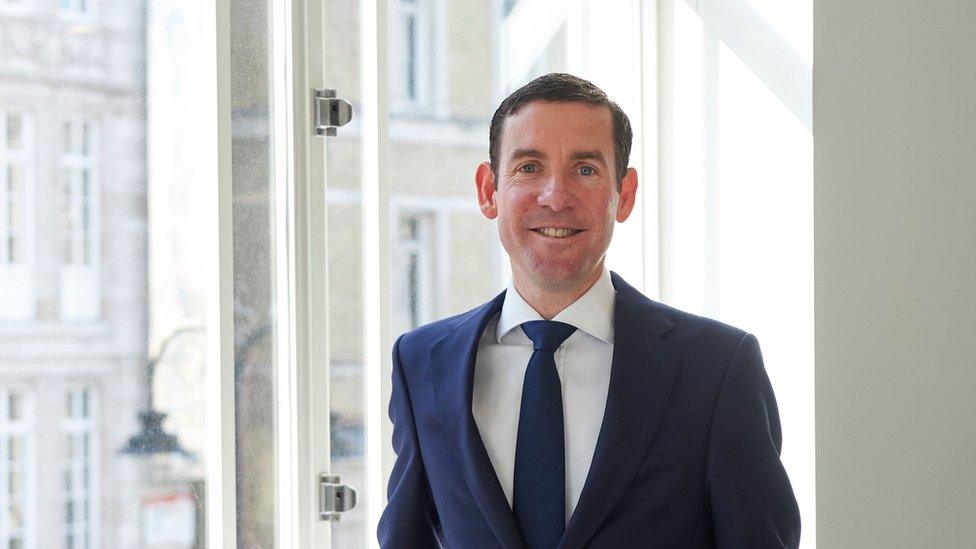
Lex Greensill was an unpaid adviser to then Prime Minister David Cameron
In a statement after the report's release, Lady Heywood described the report as "nothing less than a travesty", adding: "His absence is being exploited to distort the facts of a decade ago and divert attention from the current government's embarrassment at the collapse of Greensill Capital long after Jeremy's death."
'Marketing platform'
During Mr Cameron's time in Downing Street, Mr Greensill worked informally in government before being made an unpaid adviser on supply chain finance - a technique aimed at making it easier for businesses to receive payments.
Mr Boardman said Lord Heywood, then cabinet secretary, later appointed him to a role in the Cabinet Office's Economic and Development Secretariat.
He says it came as Mr Greensill was trying to set up Greensill Capital, his firm that specialised in supply chain financing itself.
Mr Boardman found Mr Greensill was able to "leverage his position" to hold meetings with major companies, and gave him a "marketing platform" for his business.
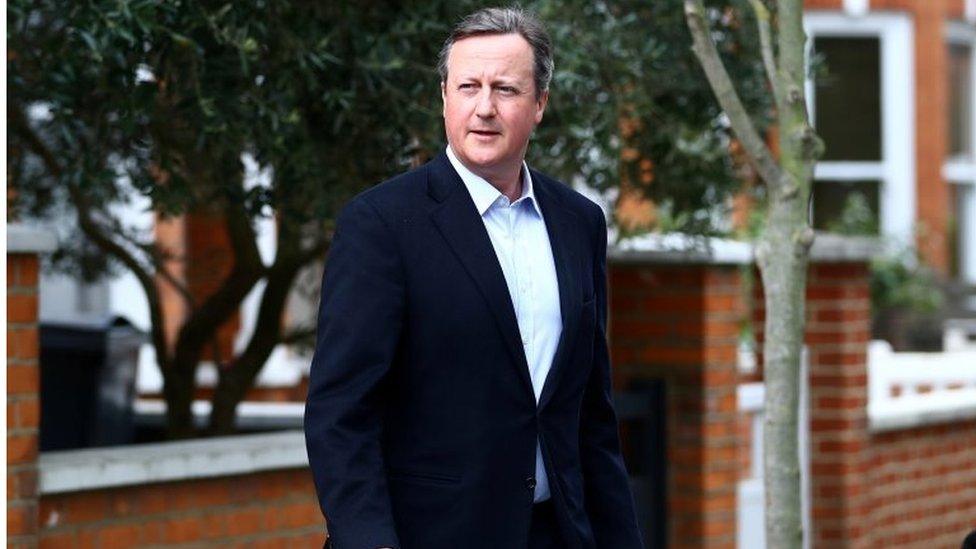
David Cameron has defended his work for Greensill Capital
He specifically criticises Lord Heywood, saying it "should have been apparent" that Mr Greensill was building a company and he "should have considered the issue of conflicts of interest".
"It is unclear why Mr Greensill was permitted to remain an adviser to government on supply chain finance under these circumstances," he added.
Mr Boardman said it was unclear whether ministerial approval was "sought or obtained" for Mr Greensill's appointment to his later role.
But Mr Boardman said readers of the report should "bear in mind" that it could not include the personal explanation of Lord Heywood, who died in November 2018.
A Cabinet Office spokesperson said the government recognised Lord Heywood's "incredible contribution to public life", adding that "this report does not dispute that".
"This has been a fair process and we have listened to Lady Heywood's concerns. We will now consider the report carefully and will respond in due course," they added.
- Published5 November 2021

- Published9 August 2021
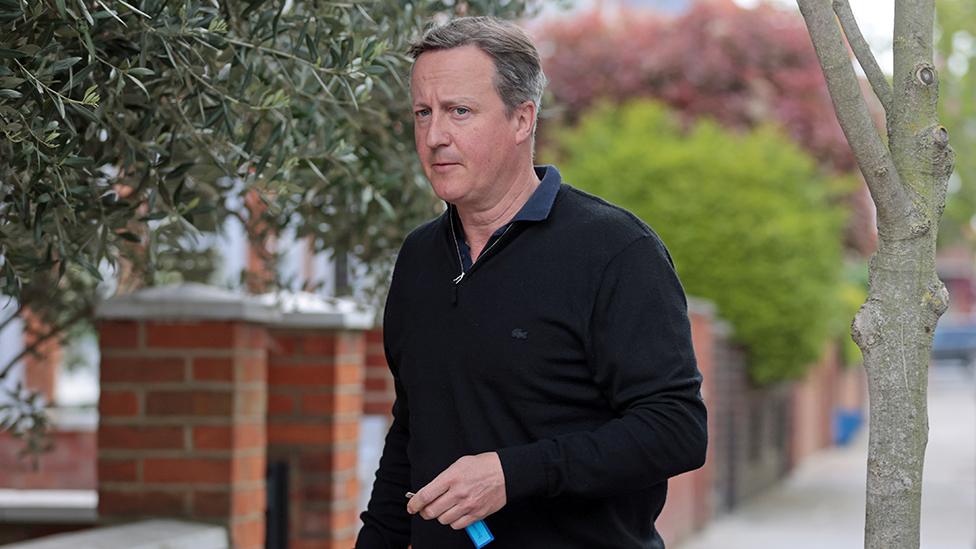
- Published12 April 2021
